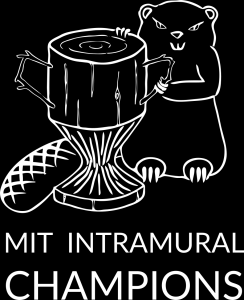One of the requirements of the course I’m enrolled in this semester, MIT Massive, is to create and maintain a blog. We were provided with a turnkey blog framework, but I decided to create a custom personal website instead and added this blog to it. Making a custom site was a lot more work than the default option (and I’ve barely added anything to it yet!), but I felt it was an important step in acting congruently with some beliefs I’ve developed about the current state of education related to assessment and GPAs.
The problems with GPAs
Anyone who has been through the U.S. education system is familiar with the grade point average, or GPA. Ostensibly, the GPA is a quantitative measure of students’ knowledge and competency in all of their academic pursuits. It is a convenient way to quickly compare different students, since it boils down their achievement to a single number. GPA is weighed heavily in university admissions decisions (for both undergraduate and post-graduate programs) as well as in hiring decisions at many companies, and I think this is the case primarily because using GPA is convenient.
I think the continued use of GPAs is a mistake and I’ve become increasingly convinced that 1. GPA doesn’t measure overall academic knowledge and that 2. using a single number to report academic achievement is hopelessly flawed.
What GPAs actually measure
First, if GPA doesn’t measure academic knowledge, what does it measure? Tautologically, a high GPA indicates that the student earned high grades, and this could have resulted from a number of reasons: they are smart, they are hardworking, they care deeply about their grades, they have deep academic content knowledge, they cheat on exams or their family has the resources to provide academic support such as tutoring, to name a few. While some of these reasons are aligned with the intended purpose of GPA, some are definitely not. Research suggests that GPA is most strongly correlated to self-discipline, which is undoubtedly a useful characteristic to measure and is important to success. That being said, because most academic environments are “artificial,” in the sense that there is a single correct answer a student is asked to find (a situation not often encountered in real, innovative work), some companies are finding that GPA has little to no correlation to job performance. I would also argue that even if GPA is a good measure of self-discipline, a metric which measured knowledge and competency more directly would be more valuable. In the current system, a lot of time, effort and money (on both the student’s side and the educator’s side) are spent awarding high GPAs and providing evidence of good work ethic without the student actually internalizing the material they are supposed to be learning. Anecdotally, I know this to be true because I took college freshman chemistry alongside classmates who passed AP chemistry (and therefore could have skipped the class had they wanted to), but still struggled with concepts that were covered in my intro high school chemistry class.
The fallacy of distilling student achievement into a single number
Second, why is trying to measure academic achievement with one number flawed? For a very long answer, you could refer to The End of Average by Todd Rose (a book which I thoroughly enjoyed and highly recommend), but even if we take “average” academic achievement as being an acceptable idea, the GPA still has problems. There are two main arguments one could make for the value of using GPA to judge students: that it is a useful tool for comparing the relative achievement of students or that it is a useful tool for comparing the absolute achievement of students.
If we consider GPA as a tool to measure the relative quality of students, it would only work within the same system (e.g., within the same school). This is fine for globally famous institutions, but high school GPAs are purportedly important even though there are very few high schools that a majority of college admissions officers would know by name. I earned a perfect, non-weighted 4.0 from Sir Francis Drake High School, but I think very few people would argue that holds the same weight as a 4.0 from Phillips Exeter Academy, even though Drake is a “California Distinguished School.” My 4.0 would also mean something different than a 4.0 from a rough inner-city high school (their’s would be a better indicator of resilience to adversity, for example). Context is important to communicating student performance and academic achievement, and GPA doesn’t provide any context.
In theory, GPA could be reasonable as a measure of a student’s absolute level of academic achievement, but it doesn’t appear that GPA fulfills this role in practice. If GPA should reflect absolute academic achievement, then we would expect that schools which perform poorly (e.g., on standardized tests, although those have their own slew of issues) would tend to give lower GPAs. In reality, you can find students with perfect or near perfect GPAs at any school, regardless of how well the school is preparing its students for employment or their next step in education. This can also be seen in “grade inflation,” which is the practice of better grades being given with each passing year. The data show that despite college grades improving significantly over the past few decades, students are more disengaged from learning, spend less time studying, and are less literate than in previous decades. I don’t think GPAs could be treated as an absolute measure unless some outside governing body was given control of assigning student grades, a prospect about as unlikely as scrapping the concept of the GPA altogether.
An alternative to GPAs: portfolios
While GPAs have their issues, we still need a way to assess students’ academic achievement, so what’s a better option? I think a reasonably implementable answer is student portfolios. A student portfolio is a collection of the student’s most exemplary work, selected and organized to emphasize the student’s strengths. Since the portfolio includes actual content they’ve generated, it allows the student to provide direct evidence of their mastery of subject matter. Ideally, project content included in a portfolio would be more closely aligned to work that would be performed in “the real world,” and would thus be much more useful than the result of an artificial test. The portfolio would therefore provide a much richer way for admissions officers or potential employers to evaluate the student than a transcript. Having students focus on building a portfolio rather than a GPA could also be pedagogically advantageous, because instead of “teaching to the test,” instructors would be incentivized to design assignments that would result in strong portfolio items, which would map more closely to genuine learning. The single number provided by a GPA provides very little information, but part of a project included in a portfolio provides direct evidence of that student’s achievement.
Motivation for my personal website
What does this have to do with my making a personal website? So far in my academic career, I’ve benefited heavily from having a high GPA, but if I want to show potential future employers (among other people) that I have real content knowledge and experience, I need a portfolio of my own. As I add more content to the website, I hope it will play that role, and I’ll be able to share work I’ve done which has had outcomes more significant than a grade on a test. And at the very least, the website itself is inherently demonstrative of what I’ve learned about web development.

 Before one can start with the design, you need to come up with the concept. For this design, I wanted to riff off the MIT mascot (the beaver, “nature’s engineer”) in a way that’s relevant to intramurals. I wanted a design that addressed that the T-shirt was the prize for winning a championship and that IMs are the most informal manifestation of organized sports in the college environment. The concept I came up with was a beaver holding a championship cup hewn from a log. After coming up with the concept itself, the first step in my design process was to sketch out a few different versions of it:
Before one can start with the design, you need to come up with the concept. For this design, I wanted to riff off the MIT mascot (the beaver, “nature’s engineer”) in a way that’s relevant to intramurals. I wanted a design that addressed that the T-shirt was the prize for winning a championship and that IMs are the most informal manifestation of organized sports in the college environment. The concept I came up with was a beaver holding a championship cup hewn from a log. After coming up with the concept itself, the first step in my design process was to sketch out a few different versions of it:

